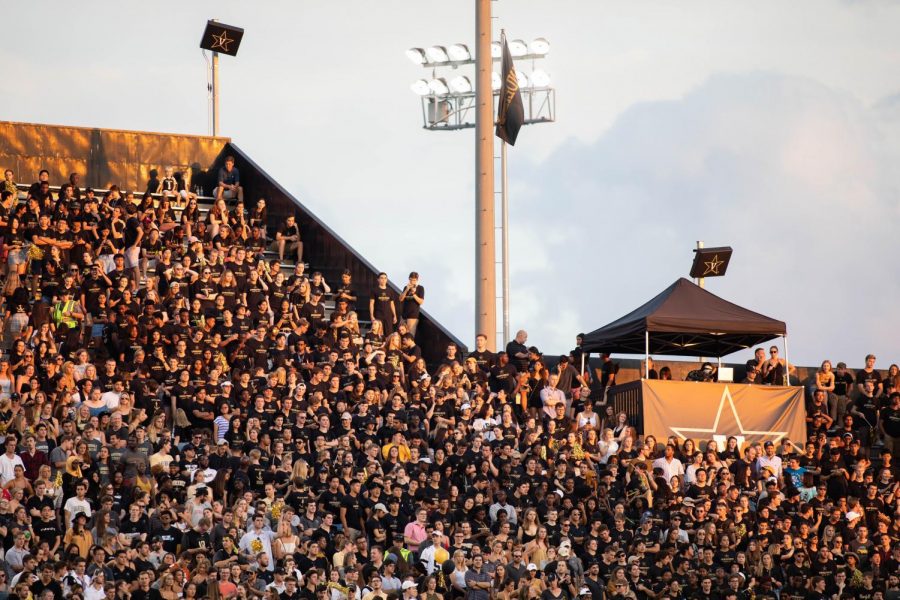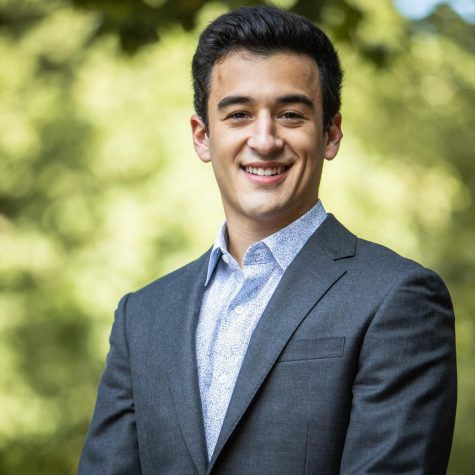When college administrators finally addressed the health and safety of student-athletes in August, the discussion brought about a roller coaster of a news cycle; one that saw two of the Power Five conferences, the Pac-12 and the Big Ten, opt to cancel (or technically, “postpone”) their 2020 college football seasons, after President Trump tweeted both his support of the Power Five student athletes’ #WeWantToPlay movement and a college football hype video.
Over the course of the past three weeks, college football has faced an unthinkable catastrophe: cancelling the season and forfeiting an estimated $4 billion in revenue.
In the end, however, it appears as though there will be a 2020 Southeastern Conference (SEC) football season—at least for now. Maybe the arduous, last-minute push by players, coaches and member institutions aided in the continuation of the SEC football season. Or maybe the thought of losing roughly $721 million in conference revenue alone had something to do with it.
Regardless, the SEC announced that its 2020 football schedule will be revealed on Monday at 6:00 p.m. CT on SEC Network, an event that seemed unfathomable when, just days ago, the cancellation of college football seemed imminent.
For those who happened to miss the near-certain collapse of college football, The Hustler breaks down the fragmented decision-making that got us to this point.
June 1: Voluntary workouts approved by NCAA
Yahoo! Sports’ Pete Thamel reported that the National Collegiate Athletic Association (NCAA) deemed it safe enough for student-athletes to return to campus, albeit in a limited capacity. According to Thamel, the governing body for collegiate athletics decided that, beginning June 1, teams may return to campus for voluntary workouts at the discretion of each conference.
In other words, the NCAA told the conferences, “it’s up to you.” The conferences’ response?
“Schools, it’s up to you.”
Many conferences, including the SEC, merely lifted their ban on athletic activities. The final decision was left up to each member institution.
Vanderbilt opted to begin voluntary athletics workouts as early as June 8.
July 8: Ivy League postpones fall sports
With little direction given by the NCAA and outbreaks continuing to mount, the Ivy League became the first conference to announce it would not play fall sports because of the COVID-19 pandemic. In its press release, the Ivy League stated that no athletics programs will compete in the fall semester, but student-athletes will retain a year of eligibility and can practice and use training facilities, provided that they do so in accordance with conference, state and institutional rules.
The Ivy League did not release information regarding winter sports and stated in the release that they will be addressed at a later date.
July 9: Big Ten moves to conference-only schedule, SEC, ACC and Pac-12 follows suit
The Big Ten was the first Power Five conference to make any decision on its fall athletics schedule, announcing on July 9 that it will move to a conference-only schedule for all sports.
Weeks after the Big Ten’s decision, the Atlantic Coast Conference (ACC) implemented a similar schedule on July 29—except they would include one nonconference game per school. The SEC and Pacific-12 (Pac-12) both decided to move to a conference-only schedule, announcing their decisions on July 30 and July 31, respectively.
July 13: Patriot League postpones fall sports
The Patriot League became the second conference after the Ivy League to postpone its fall athletics season; its postponement came on July 13 and allows for strength and conditioning sessions, so long as the teams follow safety protocols.
Two Patriot League institutions, Army and Navy, were exempt from the ruling and allowed to schedule games on their own accord because of “their missions within higher education,” the Patriot League stated.
Aug. 2: Pac-12, “#WeAreUnited”
On Aug. 2, Pac-12 players took a monumental step toward the unionization of students by publishing a piece in The Players Tribune titled, “#WeAreUnited.” By no means have the students developed an actual union; however, the letter outlines a list of demands for the Pac-12 to meet including improved COVID safety protocols, social justice reforms and revenue sharing. If the conference fails to meet the aforementioned demands, the players wrote, “we will opt-out of Pac-12 fall camp and game participation.”
Aug. 5: UConn postpones fall sports
The University of Connecticut became the first independent Football Bowl Subdivision (FBS) institution to cancel its football season due to COVID-19 concerns. The Huskies officially left the American Athletic Conference in July, so they were not required to wait for a conference-wide decision. Instead, UConn consulted medical experts and ultimately told ESPN “The safety challenges created by COVID-19 place our football student-athletes at an unacceptable level of risk.”
Aug. 7: FCS postpones playoffs
The Football Championship Subdivision (FCS), home to the lower half of Division I college football, was forced to cancel its postseason competition. The NCAA mandates that at least 50% of eligible teams participate in the regular season in order for a postseason to be held, and at that point, 8 of the 13 conferences that make up the FCS had decided to postpone play and seek out spring football options.
Aug. 8: MAC postpones fall sports
On Aug. 8, the Mid-American Conference (MAC) became the first FBS league to cancel its fall athletics season. The vote was unanimous in favor of cancellation; the conference had consulted its medical advisory council and decided that “there are simply too many unknowns for us to put our student-athletes in situations that are not clearly understood.”
Aug. 9: #WeWantToPlay
The viral #WeWantToPlay movement began with Trevor Lawrence, the star quarterback and potential first overall pick in the 2021 NFL Draft, tweeting a graphic including a message on behalf of all power five conferences: the players wanted to play. Within hours, hundreds—if not thousands—of Power Five student-athletes tweeted the same graphic with the same hashtag, #WeWantToPlay. The movement had already spread across the country, and President Trump’s quote tweet in support of Lawrence merely brightened the spotlight.
Yet by Aug. 9, while the movement spread rapidly, the power five conferences remained fragmented as ever.
Aug. 11: Big Ten, Pac-12 postpone fall sports
Evidently, #WeWantToPlay had little to no effect on the decision-making process. Two Power Five conferences, the Big Ten and the Pac-12, ultimately decided to cancel their fall seasons within days of one another. The Pac-12’s decision went so far as to postpone athletic competition through the calendar year, meaning the start of men’s and women’s basketball, among other winter sports, would also be postponed until January at the earliest.
The SEC and ACC continued to express interest in playing a fall season, though—the deciding factor, at this point, was the Big 12. Should the Big 12 vote to postpone their football season, reports suggested that the SEC and ACC would follow suit. Conversely, if the Big 12 opted not to have a fall athletic season, reports stated that the SEC and ACC may go back on their decisions and cancel their football season.
Aug. 12: Big 12 to proceed with fall season, giving SEC, ACC life
On Aug. 12, the Big 12 stated its intention of proceeding with a fall athletics season.
“The Pac-12 and the Big Ten are seeing much of the same information that we’re seeing,” Big 12 commissioner Bob Bowlsby said. “But our board believes in our scientists and has come to a conclusion that is different and so have the leadership of the SEC and the ACC.”
In the end, three of the power five conferences—Big 12, ACC and SEC—have decided a fall season is not out of the cards. Each of the three conferences are continuing to make a push at playing football in 2020; now, the question for those who cancelled: is spring football plausible?













